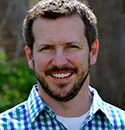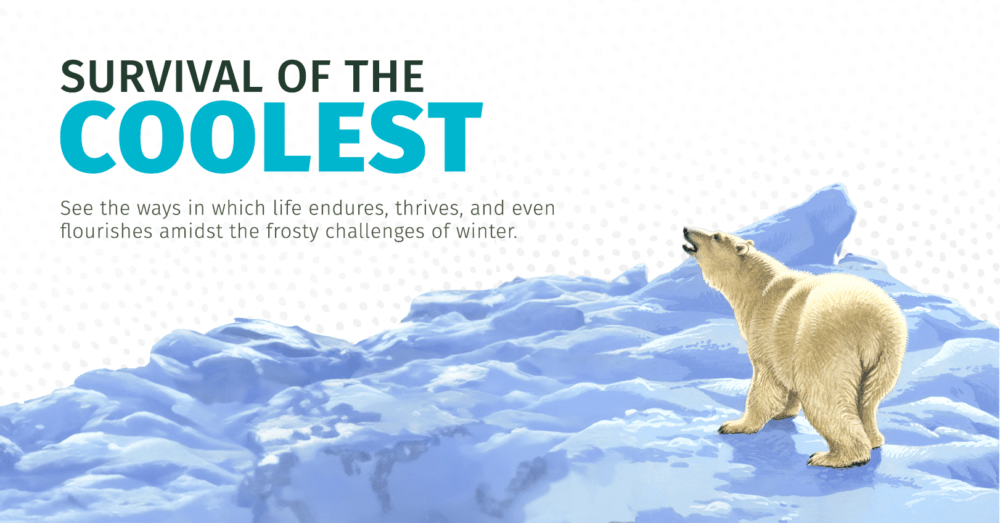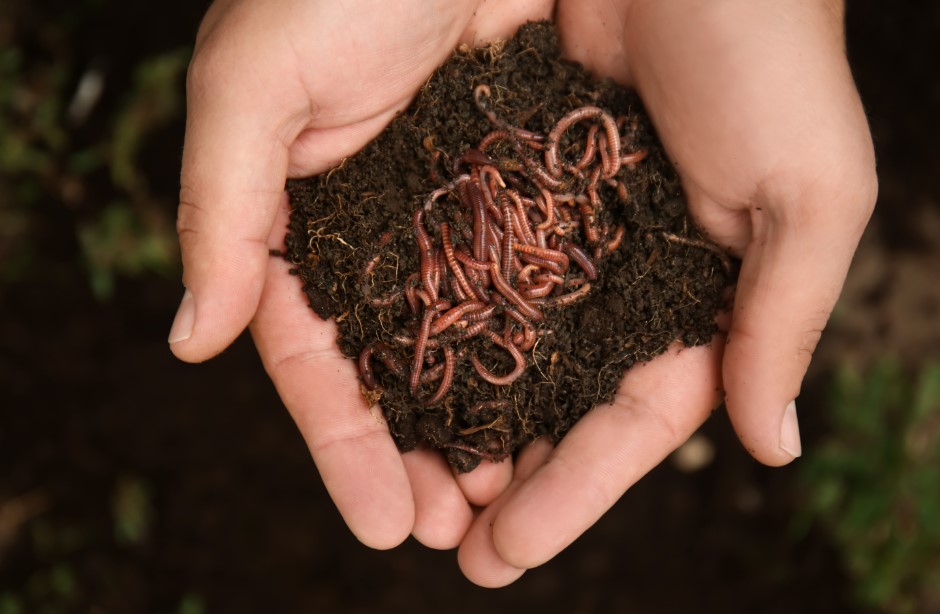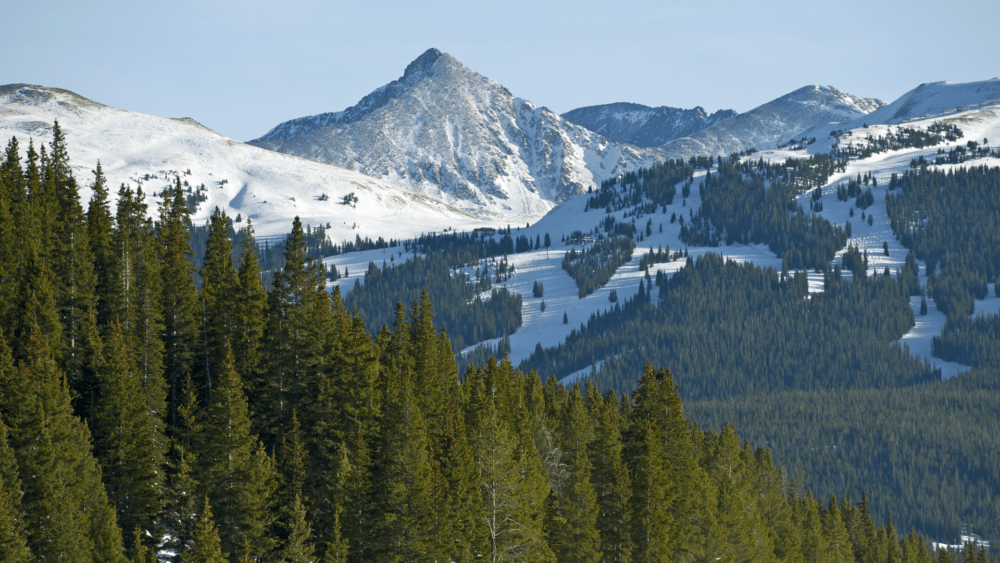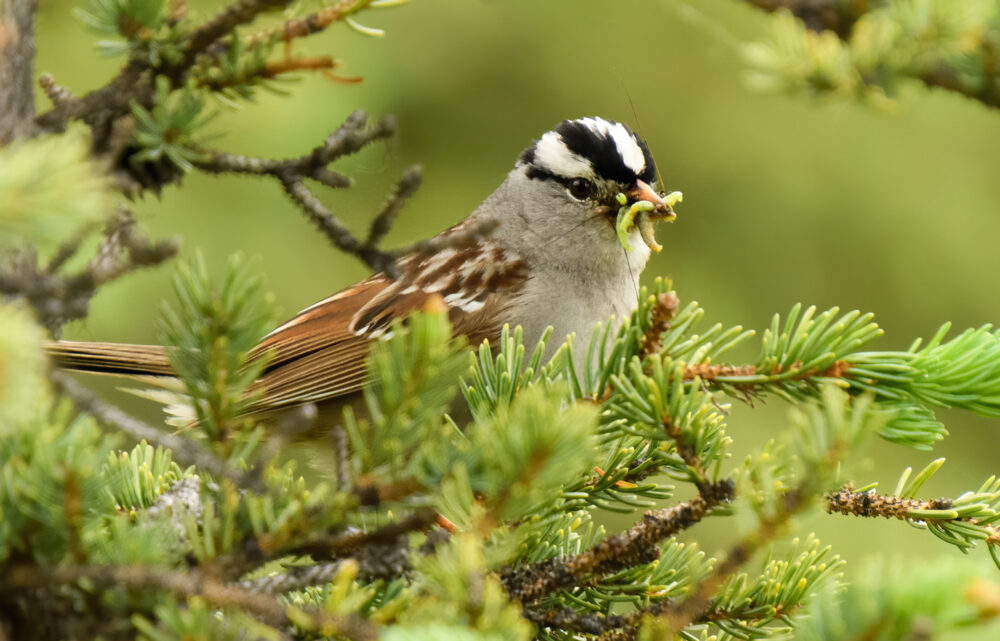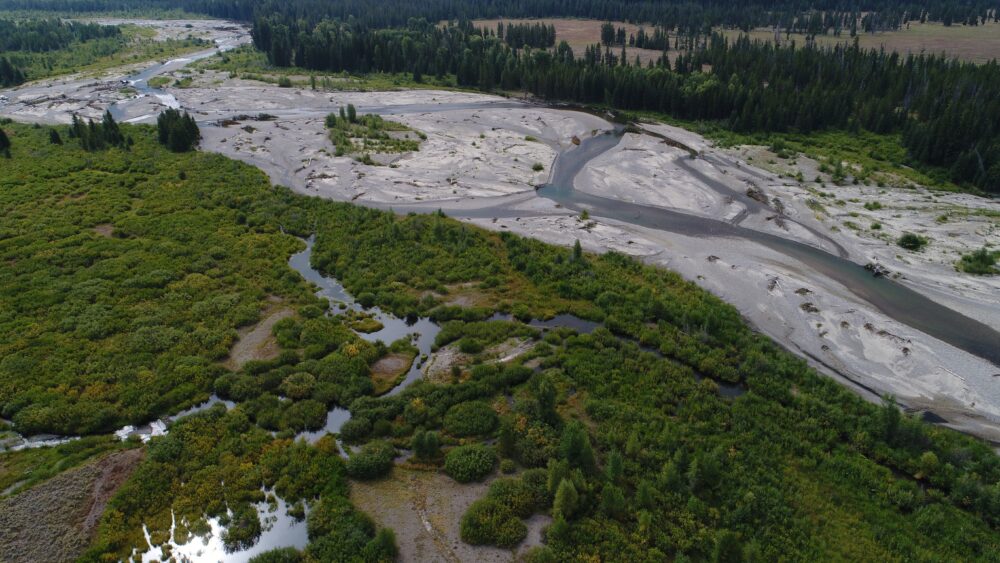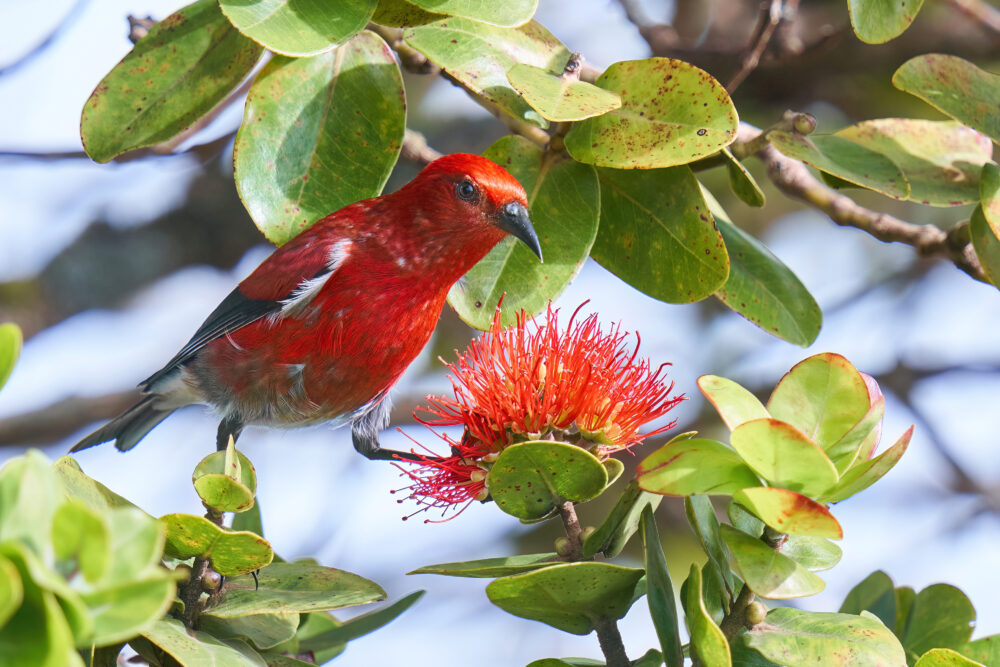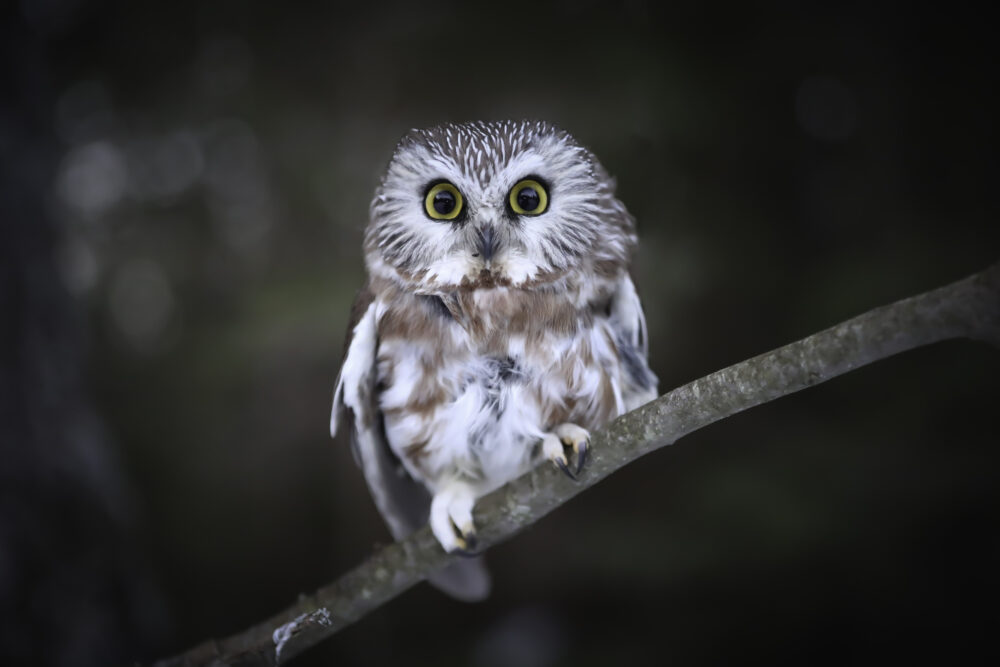We have much more to do and your continued support is needed now more than ever.
NH’s Kris Rines Honored with NWF Women In Conservation Award
As part of our ongoing celebration of Women’s History Month, the National Wildlife Federation is hosting events across the country this month honoring leading women in conservation. Yesterday we told you about Pennsylvania’s Cindy Dunn and today we’re featuring wildlife biologist Kris Rines.
Kris was awarded on March 11 by NWF’s Eric Orff. Kris and Eric have a long history of working to protect New Hampshire’s moose and I wanted to share Eric’s full remarks honoring Kris. They’re long, but I’m a sucker for anything to do with moose, one of America’s wildlife species most threatened by climate change:
I am pleased to be here to honor New Hampshire Fish and Game Department’s moose biologist Kris Rines. The National Wildlife Federation has chosen to select a few women across the nation to recognize their contribution to conservation during Women’s History Month. Kris is a 1978 graduate of Michigan State U. and worked for the Michigan DNR a time before returning to her native state here where she begun her career at Fish and Game in 1983 as the Animal Damage Control Agent.
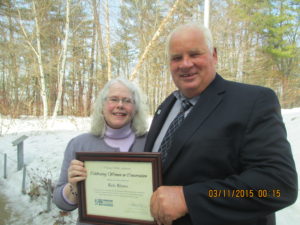
It was three years later after she became the state’s first, and only so far, moose biologist that I learned to appreciate her leadership skills. For you see beginning on July 31 1986 she kicked off the first moose collaring detail.I took a look at my diary yesterday looking at the first week in Pittsburg while we were collaring moose that year. Here I found that we successfully tranquilized and collared one cow moose that first night. My diary says “I headed back to camp at 2:00am.” While I may have had a long day Kris’s day was even longer and more intense as she prepared and loaded the darts each afternoon, then by the end of the night, no matter how late, she stayed up to unload and care for our equipment. Here again meticulous attention to details.
By 7am the next morning we were up and headed up to check on the collared moose. So on it went for the rest of the week with my diary noting most nights we were out trying to capture moose very late getting back in between 3:30 and 4:30 am, only to get back out again the next morning to check on the collared moose. It was exhausting and exhilarating and I must say some of the most intense times of my 31 year career at Fish and Game before retiring in 2007. All led by Kris’s efforts.
Kris has become an internationally know moose biologist over the last three plus decades of her career. She has been a leader in innovative moose management. Thanks to Mark Ellingwood have a list of many of her accomplishments before me. Let me glance to read you just a few of them:
- Hired as moose project leader in 1985.
- Developed and implemented education campaign for moose season.
- Developed, and implemented first moose season in 1988.
- Developed and implemented the moose hunter seminars.
- Developed and implemented the Brake for Moose Campaign.
- Worked with the Moose Safety Committee developing the Driver Education Wildlife & Highways segment.
- First person to utilize xylazine successfully in moose capture work and to successfully capture moose in road side salt licks.(1986 &87).
- Implemented first moose research on habitat use in 1987-1989.
- Developed and implemented moose research with Dr. Peter Pekins:
- 1989-1991 Moose Impacts on NH Deer Wintering Areas– (virtually none)
- 1993-1995 Evaluation of Moose Population Monitoring Techniques and Harvest Data in NH– Determined infrared aerial imagery was an accurate and fiscally appropriate method for moose censusing in NH. Determined the weights at which moose in northern NE become productive and are able to twin.
- 2001-2006 Characteristics and Dynamics of a Moose Population in Northern NH – Proved that winter tick were the main mortality driver of our northern moose herd and was also influencing weights and productivity of adult moose.
- 2001-2006 Seasonal Home Range, Habitat Use and Neonatal Habitat Characteristics of Cow Moose in Northern NH – Documented the relatively small home range size and generalized habitat use of cow moose which in turn indicated light use of existing resources and no support for a population exceeding carrying capacity.
- 2009-2011 Assessing Relationships of Moose Populations, Winter Ticks and Forest Regeneration in Northern New Hampshire. Determined the best method to monitor for tick abundance (fall tick counts on harvested moose coupled with spring hair loss surveys). Documented the positive correlation between tick and moose abundance and determined the weather conditions that may lead to tick induced mortality events. Proved that current moose densities were not adversely impacting stocking rates of commercial forest species.
- Based on the infrared survey work, determined the efficacy of the deer hunter mail survey and used that to monitor state moose populations.
- Determined the incidence and levels of Cadmium in moose liver and kidneys resulting in the human consumption warning.
But moose biology and management is only half of who Kris is. She is also a consummate conservation educator. Starting two years ago I drafted Kris’s help in forming a team of biologist to help educate the public about the impacts of climate change on our fish and wildlife. Kris led this team too with Fish and Game marine biologist Jessica Carloni, biologist Emily Preston and Audubon biologist Dr. Pam Hunt joining the team. Across the country is became know as the NH Dream Team. From Lancaster and Hanover to the north Keene and Hancock to the west and on to Greenland and twice in Concord a year apart this team literally changed the culture of this state.
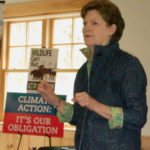
Last summer she sat down with me for a one on one with senator Ayotte giving the senator the latest on the moose situation. Kris knows to help the moose we must curb air pollution at the national level. We need our senators supporting actions like the EPA’s Clean Power Plan.And just a month ago Kris was invited to give her moose presentation to the NH House Fish, Game and Marine Resources Committee.Yes Kris is a tireless educator too. Her educational outreach knows no bounds.
For all of this and more I am proud to present Kris Rines the National Wildlife Federation Women In Conservation Award.
![]() Stand with #ConservationWomen and tell your Senator that you support action on climate change!
Stand with #ConservationWomen and tell your Senator that you support action on climate change!

